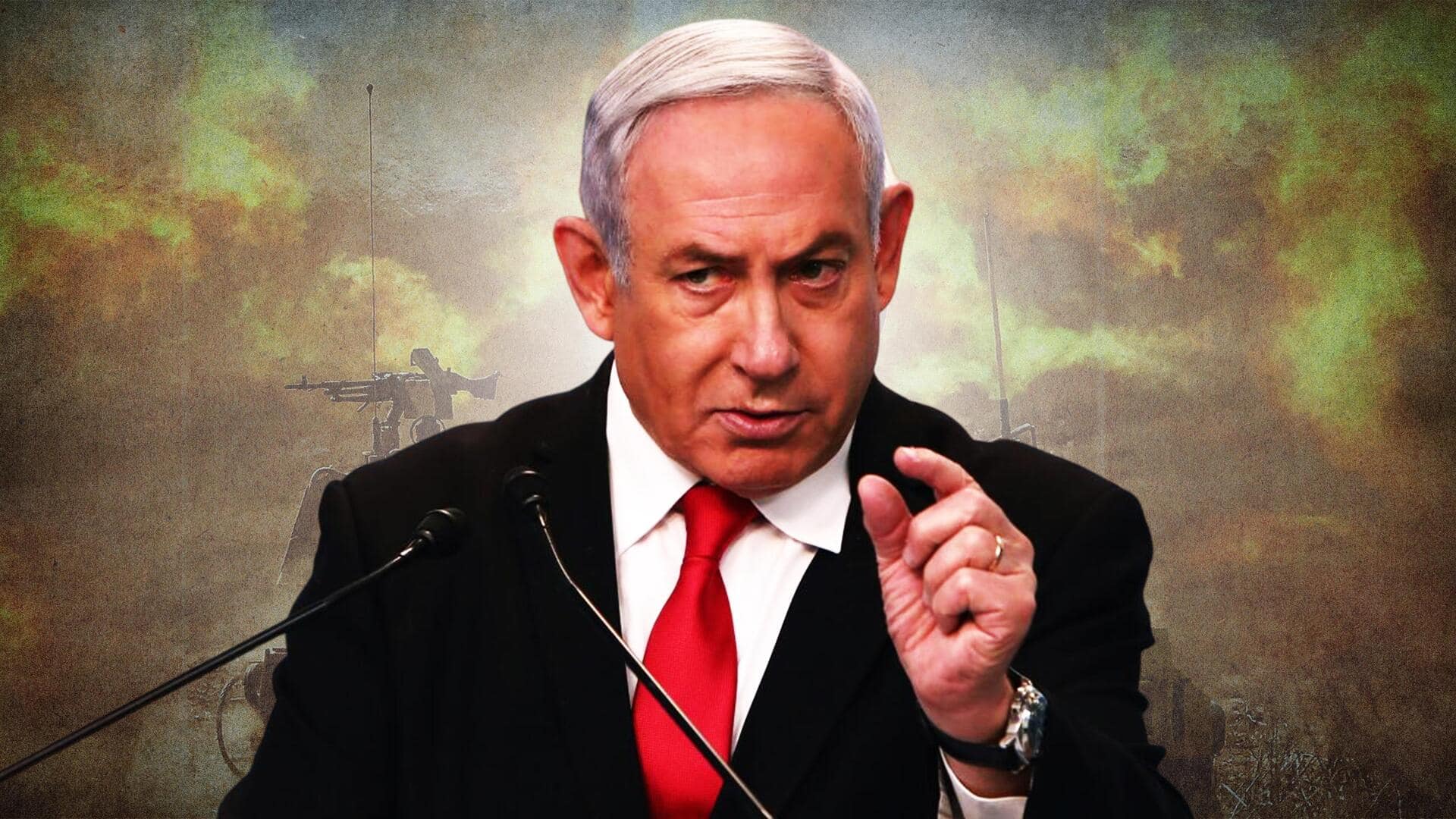
Considering 'tactical pauses,' says Israel, while indicating Gaza's complete takeover
What's the story
Israeli Prime Minister Benjamin Netanyahu has said that Israel might consider "tactical little pauses" in the ongoing conflict with Hamas in Gaza to allow aid delivery or hostage release. However, he categorically dismissed the idea of a ceasefire. Netanyahu also said that Israel might have the "overall security responsibility" for Gaza for an "indefinite period" after the war ends. He suggested Israel could govern the Palestinian enclave, saying when they don't have control, there is an "eruption of Hamas terror."
Context
Why does this story matter?
The Gaza conflict, triggered by Hamas's October 7 attack on Israel, has entered its second month. Gaza has witnessed over 10,000 deaths, including 4,104 children, while 2,300 missing people are believed to be buried under the rubble of destroyed buildings, the Hamas-run Health Ministry said. The growing calls from across the world to stop the war gained a strong voice on Monday as the leaders of 18 United Nations (UN) agencies issued a joint statement pressing for an immediate ceasefire.
Facts
What Netanyahu said about humanitarian pauses
Rejecting ceasefire calls, Netanyahu told ABC News, "As far as tactical little pauses—an hour here, an hour there—we've had them before." "I suppose we'll check the circumstances in order to enable goods, humanitarian goods, to come in, or our hostages, individual hostages, to leave." Until now, Israel has rejected even the United States (US)'s requests for humanitarian pauses. The European Union is seeking an alternative route for delivering aid to Gaza amid a logjam of aid at the Egypt-Gaza border.
Details
How humanitarian pauses are different from a ceasefire
A humanitarian pause is a brief halt in hostilities in specific areas for humanitarian purposes, such as enabling aid or allowing the movement of displaced individuals. These pauses can last for a few hours, unlike a ceasefire, which is a broader suspension of hostilities agreed upon by the involved parties. Ceasefires often involve formal political processes and commitments to de-escalate the conflict, covering the entire geographical area of the war and potentially leading to a permanent resolution.
What Next?
Calls for ceasefire from various countries
Major UN organizations, Russia, and Arab nations have urged for a humanitarian ceasefire in Gaza. However, the United States has opposed this idea, with Secretary of State Antony Blinken arguing that it would allow Hamas to remain in power and regroup. The United Kingdom (UK) has also taken a similar stance. Meanwhile, South Africa joined the diplomatic boycott of Israel on Monday and recalled envoys from Tel Aviv after a similar move by Bahrain, Bolivia, Chile, Columbia, Jordan, and Turkey.
Insights
UNSC fails to arrive at consensus over ceasefire
The European Union has been unable to reach a consensus on calling for a ceasefire and instead supports a humanitarian pause. France, Spain, Portugal, and Ireland are in favor of a ceasefire, while Italy, Germany, and Iceland abstained from the UN Security Council's resolution on the matter. UN Secretary-General Antonio Guterres said the war is clearly seeing international humanitarian law, demanding the protection of civilians and essential infrastructure, being violated, adding that no one is above these laws.
History
History of Palestinian territory
The Gaza Strip has been under siege by Israel since 1967, while the Palestinian territory of the West Bank has also been under occupation since the same year, following the establishment of Israel in 1948. Israel was established after a UN resolution in 1947 to divide the British mandate of Palestine into a Jewish state and an Arab state. Britain took control of Palestine and Transjordan from the Ottoman Empire, which conceded them following the end of World War I.